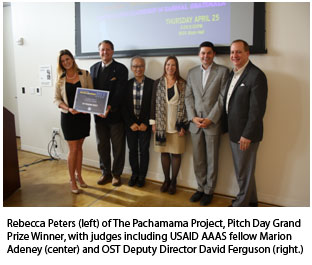 The lack of water, sanitation, and hygiene (WASH) programs that take into account menstrual hygiene and management (MHM) creates asymmetrical negative impacts on women and girls. The Pachamama Project is the first MHM initiative of its kind in Mexico and Bolivia and builds on the successes and challenges encountered during its initial fieldwork and on previous health focused research efforts on MHM. MHM will not become a priority for gender, water, and rights concerns unless researchers and practitioners make deliberate efforts to mainstream MHM into human rights and WASH based initiatives. By framing MHM as a human rights issue, the Pachamama Project taps into larger discourses of justice and gender equality instead of sidelining MHM from the global water, sanitation, and hygiene development agenda. By fostering community discussion, education, and participation in MHM activities, the Pachamama Project will enable structural change on the communities’ terms, while broadening understandings of the human rights connection to water, sanitation, and gender equity.
The lack of water, sanitation, and hygiene (WASH) programs that take into account menstrual hygiene and management (MHM) creates asymmetrical negative impacts on women and girls. The Pachamama Project is the first MHM initiative of its kind in Mexico and Bolivia and builds on the successes and challenges encountered during its initial fieldwork and on previous health focused research efforts on MHM. MHM will not become a priority for gender, water, and rights concerns unless researchers and practitioners make deliberate efforts to mainstream MHM into human rights and WASH based initiatives. By framing MHM as a human rights issue, the Pachamama Project taps into larger discourses of justice and gender equality instead of sidelining MHM from the global water, sanitation, and hygiene development agenda. By fostering community discussion, education, and participation in MHM activities, the Pachamama Project will enable structural change on the communities’ terms, while broadening understandings of the human rights connection to water, sanitation, and gender equity.
A Healthy Smile (UC Berkeley)
The Suitcase Clinic is a student-run organization that operates three drop-in centers for the homeless and low income community of the East Bay and Alameda

